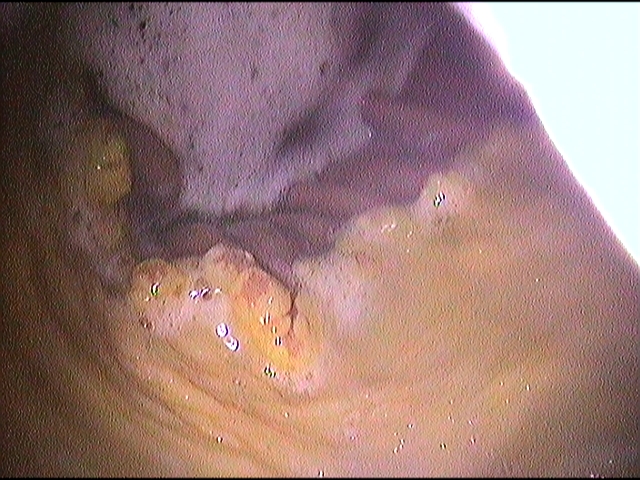Gastric Ulcer
Connecticut Equine Clinic in Amston, Connecticut can treat horses with gastric ulcers.
Gastric ulcers in horses are quite common. Studies have shown a prevalence of 25%-50% in foals and a frequency of up to 40% in general adult horse population and up to 90% prevalence in performance horse populations. There are a variety of reasons why horses have gastric ulcers. Connecticut Equine Clinic knows that while gastric ulcers are common, they are rarely life-threatening and can be cured with appropriate treatment. Gastric ulcers by themselves are rarely a serious problem and some horses don’t show any symptoms. However, they can predispose and cause more serious medical conditions such as weight loss, impaired performance, lethargy, anemia and they can predispose horses to colic episodes, which can lead to even more serious complications including death.
Why do horses get gastric ulcers? A horse’s stomach is divided into two sections, glandular and non-glandular.
The glandular bottom half secretes the stomach acid and has a protective layer to keep it from being damaged by that acid. The top non-glandular section is designed for mixing the stomach contents and does not have that protective layer. The line that separates the two sections is called the ‘margo plicatus’. Gastric ulcers are usually found just above the margo plicatus in the non-glandular section of the stomach. At Connecticut Equine Clinic, diagnosis of gastric ulcers is made by gastroscopy, or passing a camera into the horse’s stomach to determine if ulcers are present.

Connecticut Equine Clinic knows that there are many sources of stress that can contribute to acid build-up in a horse’s stomach:
- Competition
- Training
- Travel
- Weekend shows or events
- Confinement
- Lay-Up due to sickness or injury
- Changes in routine
There are multiple factors that increase the risk of gastric ulcers in horses:
- Fasting
- Type of feed
- Amount of exercise
- Medications
Signs of gastric ulcers in foals include:
- Intermittent colic
- Poor appetite and nursing for only short periods
- Teeth grinding
- Excessive salivation
- Diarrhea
- Lying on the back
Signs of gastric ulcers in adult horses include:
- Poor appetite
- Weight loss and poor body conditions
- Poor hair coat
- Mild colic
- Mental dullness or attitude changes
- Poor performance
- Lying down more than normal
Medications and changes in management practices are the cornerstones of therapy for equine gastric ulcers. Different medications are used for three purposes:
- To decrease acid production
- To buffer the acid that is produced
- To protect the lining of the stomach from the effects of the acid
Treatments of gastric ulcers at Connecticut Equine Clinic include:
- HR2 blockers that block the action of histamine that stimulates the production of stomach acid.
- Proton pump inhibitors that inhibit the production of acid in the stomach.
- Antacids that buffer the action of the stomach acid.
- Protectants that can block acid from coming into contact with the stomach lining.
Gastrogard (omeprazole) paste is the first and only FDA-approved medication to treat and prevent the reoccurrence of stomach ulcers in horses.
The duration of the therapy will be dependent on the severity of the ulcerations and progression of healing as determined by a follow-up gastroscope at Connecticut Equine Clinic.
Connecticut Equine Clinic knows that the prevention of ulcers is the key.
Limiting stressful situations along with frequent feeding or free-choice access to grass or hay is imperative. Neutralizing the production of stomach acid is nature’s best antacid. For the best equine veterinary care in the region, contact Connecticut Equine Clinic at (860) 742-1580, conveniently located in Amston, Connecticut.
Contact Us